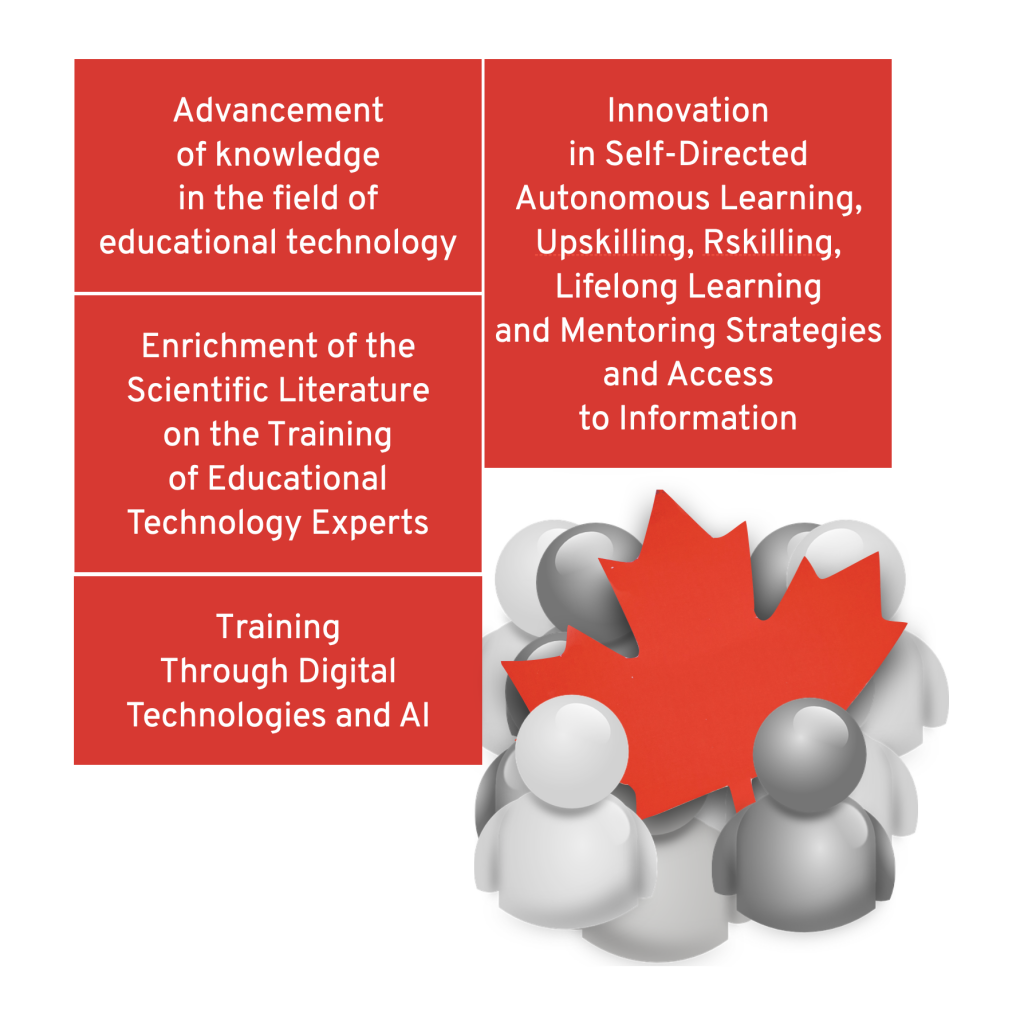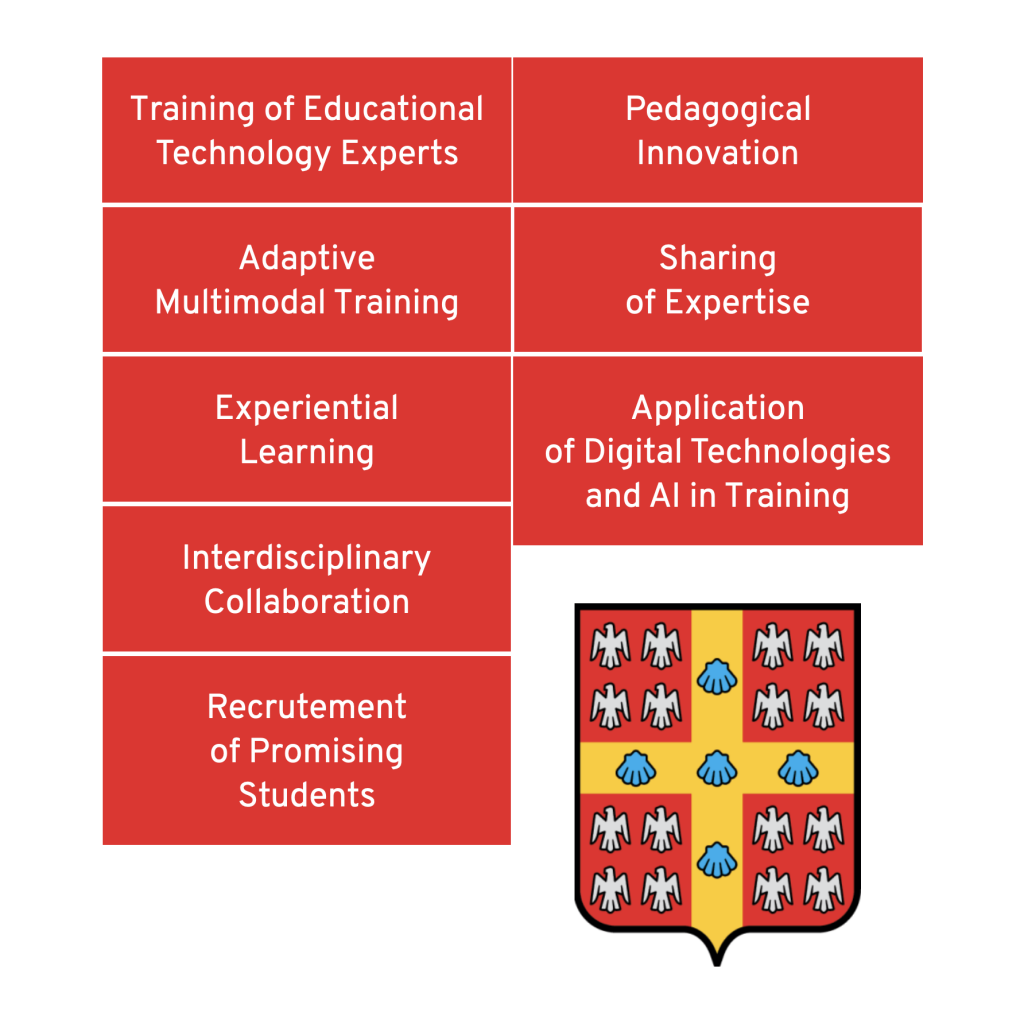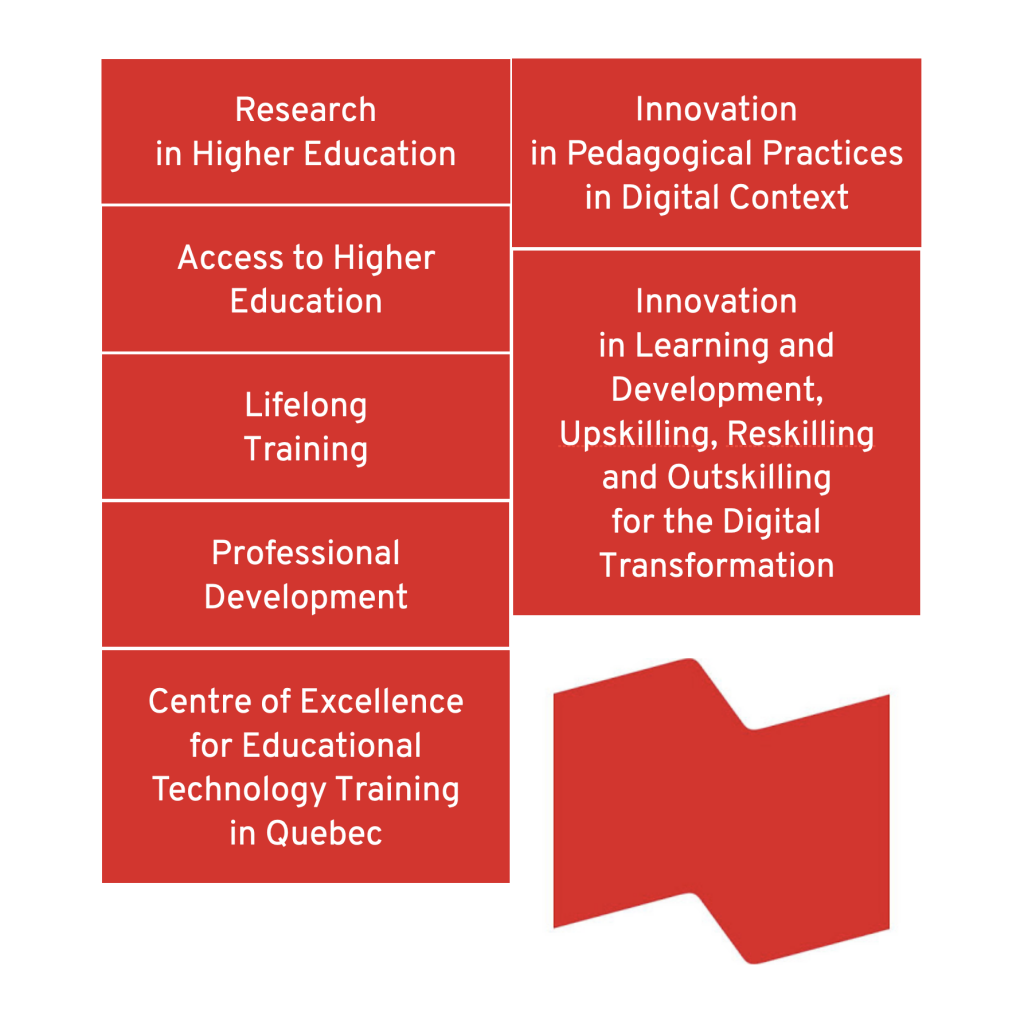The chair
Description of the Chair
The advent of advanced digital technologies, big data, artificial intelligence, and automation continues to reshape the landscape of employment and professional development.
In the era of ongoing digital transformation, accelerated by the aftermath of the COVID-19 pandemic, the nature of work, collaboration, and professional learning is being reinvented. Organizations are increasingly recognizing the importance of establishing a digital workplace and fostering a culture of lifelong learning, enabling employees to adapt and evolve swiftly in response to these changes. Investing in people and their continuous learning has become a top priority.
As we navigate the ever-evolving labor market within the context of the 4th industrial revolution and the post-pandemic world, we must consider how to effectively design training, reskilling, and upskilling programs that facilitate human-machine collaboration and promote augmented intelligence. This critical question lies at the heart of the work of the Chair in Educational Leadership (CEL) on Innovative Pedagogical Practices in Digital Contexts – National Bank.
Adopting a systemic approach, the CEL in Innovative Pedagogical Practices in Digital Contexts – National Bank aims to contribute to the ongoing modernization of Université Laval’s courses in the Educational Technology programs. The central mission of the Chair is to train current and future educational technology experts to collaborate with transformative technologies in designing learning, training, upskilling, and reskilling experiences for clients and learners who urgently require the skills and knowledge to thrive in the fast-paced digital and AI-driven world.
Educational technology experts of the future are tasked with helping both existing and emerging workforces integrate into tomorrow’s workplace and addressing resistance to change at various levels, ranging from governance to individual stakeholders, in order to facilitate progress. Clients undergoing digital transformation anticipate a wide range of offerings, such as diverse learning pathways, mobile, responsive, personalized, and inclusive learning experiences, learning in the flow of work, gamification, serious gaming, learning communities on social media, simulation, augmented, virtual, or extended reality, while still valuing formal and traditional training methods. In response to these demands, the approaches and methods employed by educational technology experts are undergoing significant changes, including the exploration of learning analytics, among other innovations.
The challenge of the Chair’s work is to ground training in the realities of learning in the digital age and artificial intelligence era while advocating for a critical, responsible, ethical, equitable, and sustainable approach to digital education and training in the workplace, using a multidisciplinary, interdisciplinary, and intersectoral approach.
Design accessible and equitable learning experiences to empower future educational technology experts, enabling them to excel in the digital and AI-driven landscape and address the evolving training requirements of the future workforce.
Develop comprehensive training and lifelong learning opportunities encompassing two themes: “Innovative Pedagogical Practices in Digital Contexts” and “Human-Centric Upskilling and Reskilling within the Digital Transformation.” These programs will target educational technology professionals at various career stages, as well as educators, school principals, and stakeholders in diverse educational settings. Participants will gain the skills necessary to create tailored instructional and non-instructional interventions that cater to the unique needs of clients and learners in the digital and AI era.
Enhance the understanding of pedagogical approaches and explore the issues, challenges, and potential solutions related to the critical, ethical, responsible, equitable, and sustainable application of digital technologies and artificial intelligence in education. This knowledge will support the development of equitable training that meets the demands of the workforce in the 4th industrial revolution while fostering effective collaboration among humans and between humans and machines in the digital age.
Impact of the Chair’s Work

For the Society
- Contribute to the advancement of knowledge in the field of educational technology, which will have an impact on the training of the current and future workforce in the digital and artificial intelligence era;
- Equip the experts in educational technology to diversify digital training approaches and methods to support the integration and the inclusion of the current and future workforce in digital workplaces;
- Help fill gaps in the scientific literature regarding the training of instructional designers who are required to answer the training needs of a multi-generational, multidisciplinary, multisectoral and global workforce ;
- Determine and target training solutions for upskilling, reskilling, outskilling and lifelong learning that include responsive, adaptive and personalized or tailored mobile learning, self-service or on-demand learning, micro-learning, mentoring and experiential learning.
For the Academic Community
- Enrich the training of educational technologists, instructional designers, learning experience designers and performance consultants by promoting the critical and responsible integration of digital technology in pedagogical approaches
- Support pedagogical innovation among students through excellence scholarships;
- Increase the recruitment of promising and committed students;
- Examine the application of serious games, social media, virtual, augmented and cross-reality in training and development;
- Create situations conducive to experiential learning, including the ethical and responsible use of artificial intelligence;
- Promote the Chair through interdisciplinary collaboration;
- Promote the sharing of expertise with partner institutions;
- Adapt course offerings (physical, co-modal, hybrid, distance learning) to meet the needs of professionals in educational technology and training.


For the National Bank
- Promote and support university research and teaching in the integration of digital technology in training;
- Valorise the field of educational technology;
- Increase the offers for continuing education;
- Facilitate access to university studies and professional development;
- Create a centre of excellence for educational technology, instructional and experience learning design training in Quebec;
- Support innovation in pedagogical practices in digital contexts;
- Support innovation in training and development, upskilling and reskilling for an effective digital transformation;
- Support the development of the skills of experts in educational technology and those involved in educational transformation so that they are able to design training and development, upskilling and reskilling experiences for clients and learners who urgently need to be equipped for a future of work in the digital and AI era.
For more information about the Chair in Educational Leadership program, consult this document (in French).




